They advise eating a colourful diet! The fact that you don't want everything on your plate to be the same colour because it lacks visual interest and appeal is part of this.
However, blue foods often tend to be high in antioxidants, which offer numerous health advantages in addition to the aesthetic value that anything blue naturally adds to a plate.
Fruits and vegetables that are naturally blue may help prevent cancer, heart attacks, and strokes. The pigments that give these meals their distinctive hue indicate the presence of uncommon vitamins that are harder to get from other sources.
It's recommended to have a colourful diet, so they say. So where do you look for a little bit of blue to add to yours?
Naturally Blue Food
You may be surprised by the variety of sources it can come from, but here are 13 of the healthiest, tastiest alternatives on the market that are also loaded with the vitamins and antioxidants your body needs to stay strong.
Blueberries
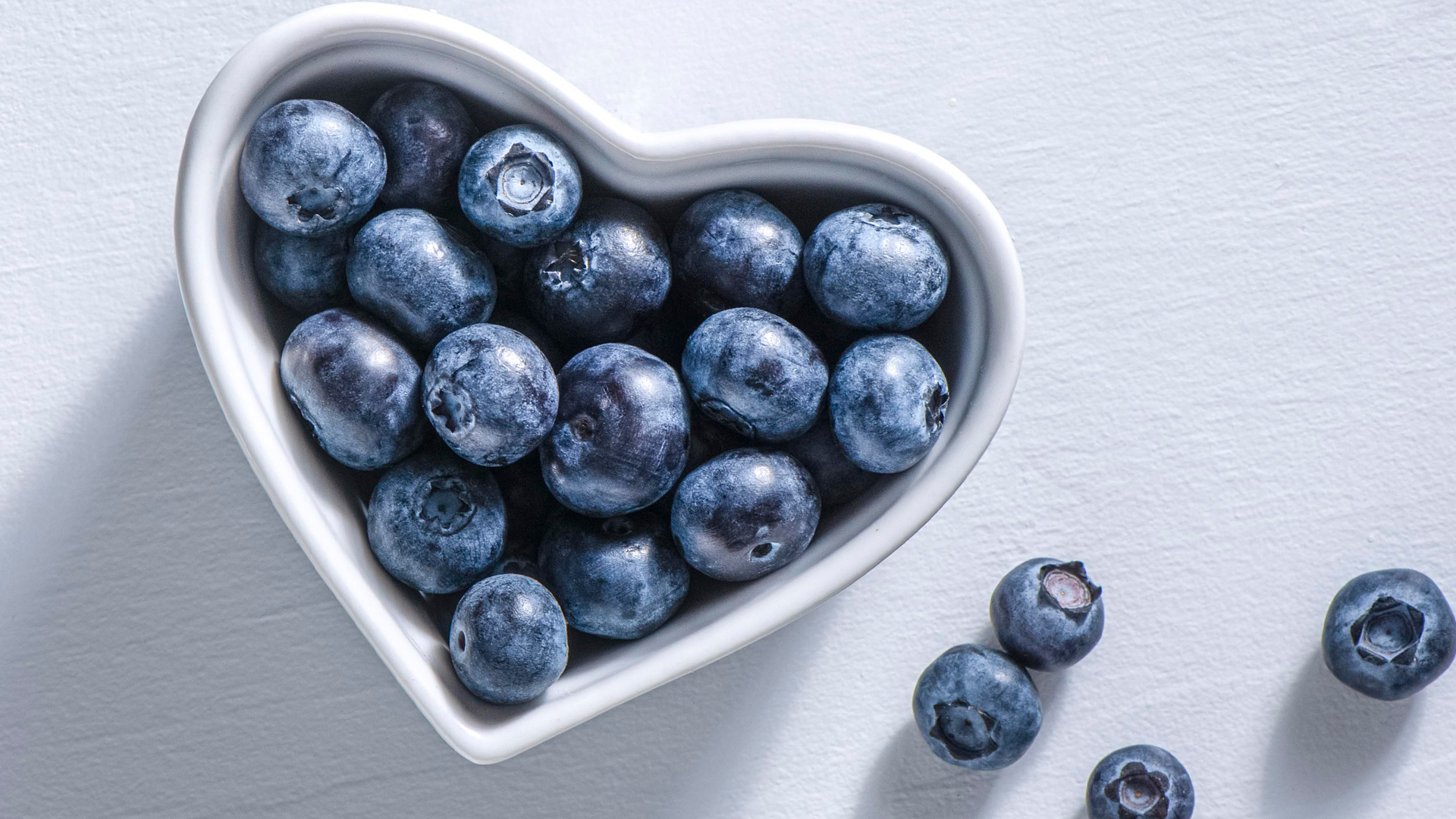
Blueberries are among the greatest foods you can eat to get antioxidants while discussing them.
When it comes to fruits, blueberries are one of your greatest options if you're searching for something with a punch to balance out all of the natural sugars that fruits often contain.
They include a lot of various vitamins in addition to the antioxidants that protect the cells in your body.
In addition to all of this, blueberries taste great. Although blueberries are usually always sweet, many fruits, especially berries, may lean a little too sour.
Blue Cheese
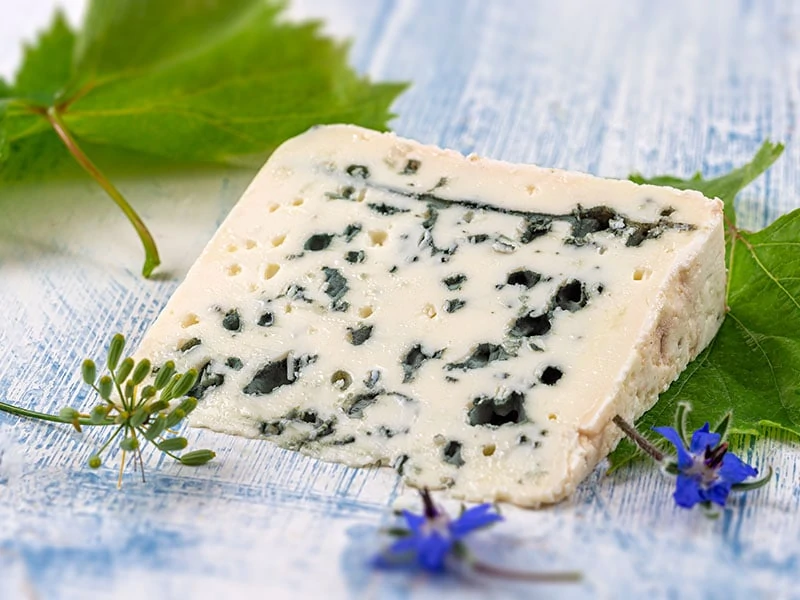
Because it is manufactured with a culture of penicillin in it, which gives it its unique blue hue, blue cheese is not so much blue as it is a cheese that has blue in it.
This does indicate that a mould was present throughout the cheese's pasteurization process, but unless you have a penicillin allergy, you shouldn't have any problems eating the cheese.
When bringing blue cheese to lunch, keep in mind that its taste tends to be harsh and that it is notorious for having a pungent fragrance. Also, make sure that none of your dining mates has sensitive noses.
Blue Corn

You heard correctly; blue corn is present. The good news is that apart from the vitamins that are included with the pigments that give it its blue colour, it is almost similar to the yellow kind.
It may be consumed similarly to regular maize or transformed into tortilla shells and chips, among other things, much like its yellow version.
The original kind of corn is known as blue corn, and if you find it growing wild, it is more likely to have the pigments that make some or all of the kernels blue rather than yellow, as you would be used to with commercial corn.
Adirondack Blue Potato

When sliced open, the Adirondack Blue Potato's inside is a vivid shade of violet, despite the fact that its exterior resembles a conventional potato nearly exactly.
The potato's ability to retain its blue hue after being boiled or fried makes it a fantastic complement to any recipe if you wish to add a touch of blue.
Make sure you give the proper person the baked Adirondack potato before cutting it open for a pleasant surprise.
Some people could be thrilled to see blue inside a potato when they cut it open, while the same thing would completely turn others off.
Indigo Milk Cap Mushroom
Although the indigo milk cap mushroom seems like it belongs in a 1970s cartoon, it won't make you feel horrible.
It has a gorgeous umbrella-shaped hue and is safe to consume since it is neither toxic nor psychedelic.
If you're interested in sampling this sapphire shroom, you may have to wait a bit, purchase it online, or travel in order to locate it because they only grow in a few places throughout the globe and only temporarily during the late summer.
For some, the wait is well worth it.
Blue American Lobster
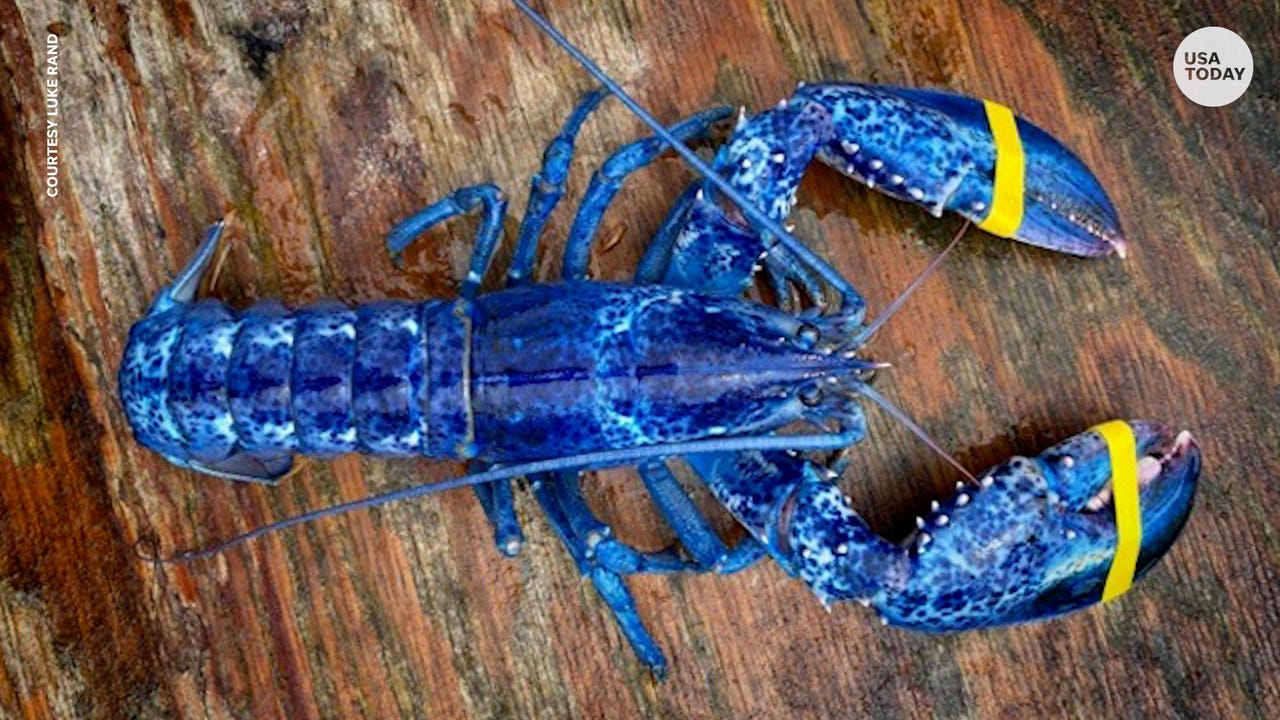
The blue lobster in America is quite uncommon. a catch rate of 1 in 2 million.
I'm not sure whether you could call it a naturally occurring "food" since most people who capture this kind of lobster would keep it as a pet or show it instead of eating it right away.
Due to its scarcity and perceived worth, the chances of you finding one of them to eat are minimal to none.
Every year, millions of pounds of lobster are taken, but discovering a blue one among the reds is unusual enough to make headlines.
Blue Marble Tree
The blue marble tree, which is indigenous to Australia, produces what is known as "figs," which resemble giant blueberries.
Additionally, they are blue, not a purple that the botanical or culinary societies mistakenly classified as blue.
Although the tree is native to Australia, it may be seen growing in 1Hawaii's public gardens and on college campuses.
Therefore, you may be able to locate blue marble tree figs as an addition to the supper you're preparing if you chance to reside in Hawaii or a coastal area.
Blue Pea Flower

Don't be misled by the fact that the blue pea blossom is often used in pesticides; it may also be made into a tea that is very healthy for people.
Southeast Asia is where this plant, sometimes known as the "butterfly pea blossom," is produced.
The flower has the name of a 2Hindu deity, and the pigment that gives blueberries and other naturally blue foods their blue hue also makes the blossom rich in antioxidants.
If you don't live nearby, you probably won't be able to get this in your neighbourhood grocery shop, but you can simply purchase it online.
American Blue Crab
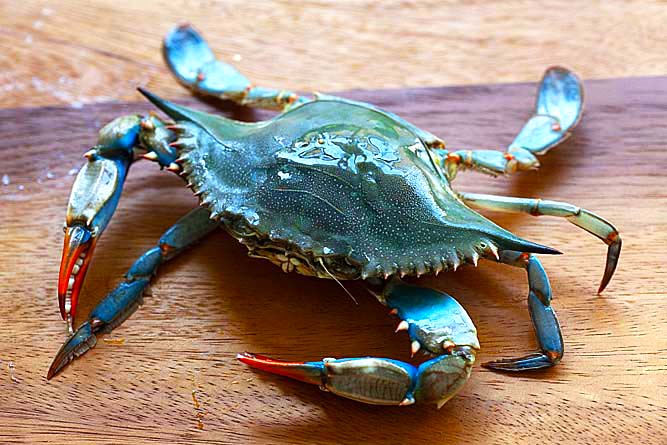
They are harvested in significant quantities throughout their season and are known for the blue to the green hue of their shells.
Although crabs may reach a maximum length of nine inches, they are often plucked before they do, so any blue crab you eat was probably still developing when it was captured.
Crab is a nutritious complement to any diet, unless you have a shellfish allergy since marine meat is often low in fat and abundant in various proteins.
Concord Grapes
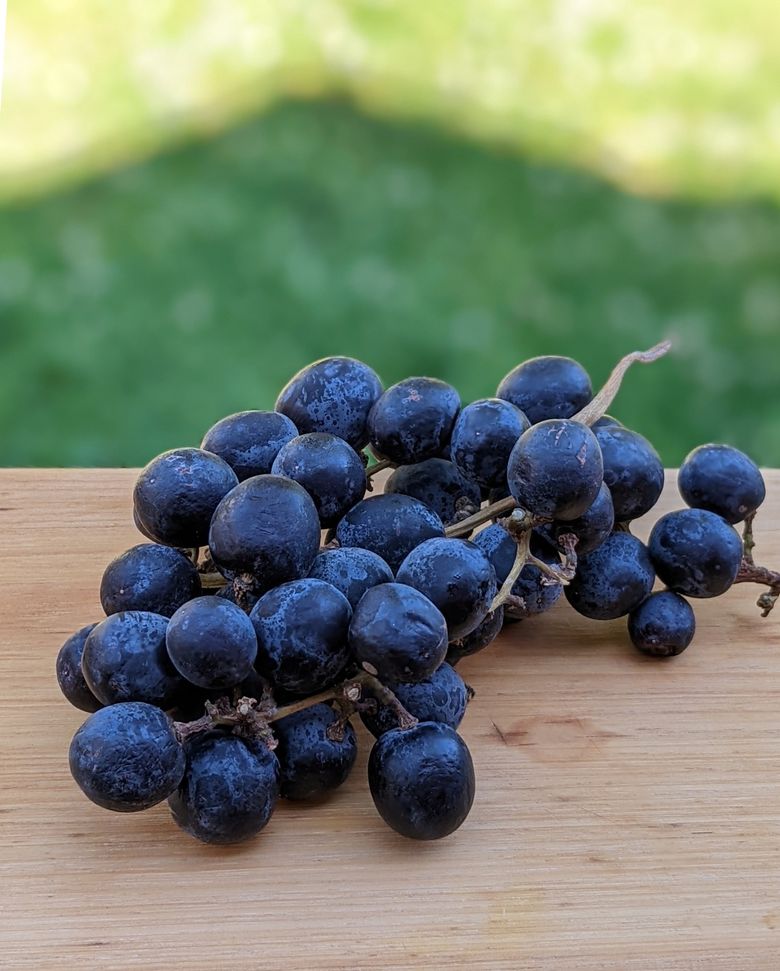
If you're eating purple grapes in the US, they're usually Concord Grapes most of the time.
These are the grapes that are most often used in juices and jams, but you can also easily find bunches for sale in the produce area of your local grocery store.
It's not difficult to encourage kids to eat grapes, which makes them a great snack.
Like other meals, they go well with fruit salads and are a fantastic source of vitamins and antioxidants that keep your body functioning.
Concord grapes are among the simplest to find among the items on this list.
Damson Plums
In actuality, 3Damson plums aren't the best for eating right off the tree.
They have a reputation for being bitter and disagreeable when eaten fresh, but they work particularly well in jams and jellies.
This particular plum is probably not going to be included in your fruit salad.
However, if you want to add some colour and flavour to your morning spread in addition to the vitamins and antioxidants I've been talking about, try adding some damson jam.
Of then, if you love bitter flavours, you could discover that the plums are okay just the way they are.
Elderberries
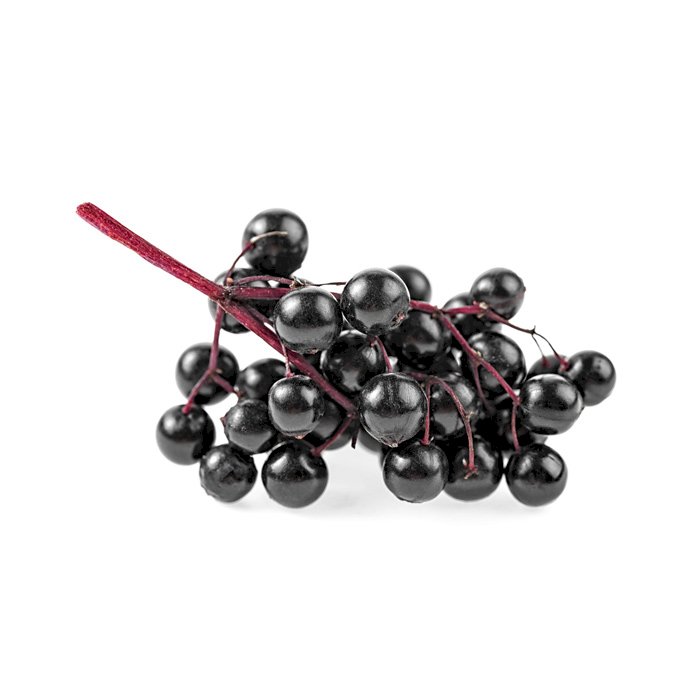
Many of you (at least the cool ones) probably glanced at this and thought, "Ah, exactly how my father used to smell!"
Elderberries, on the other hand, are actual fruits and are quite high in vitamin C. They are also strong in antioxidants—most foods that are blue will be—so you can search for that and be sure it will benefit you at least in that way.
Just keep in mind that eating unprocessed elderberries might make you hazardous to people if you consume too many of them.
Starflowers

You may be asking yourself, "Flowers? You wouldn't be alone if you asked, "Is the Egyptian Starflower edible?" However, although it isn't the best choice for the main ingredient in a meal, it makes a great garnish that you can pick up and nibble on.
They have a wonderful aroma and a pleasant crunch when you bite them.
If you want to add some texture and a little bit of colour to your meal, you can go for starflowers. The starflower can be a good option if you want something compact.
Naturally Blue Food
- Blueberries
- Blue Cheese
- Blue Corn
- Adirondack Blue Potato
- Indigo Milk Cap Mushroom
- Blue American Lobster
- Blue Marble Tree
- Blue Pea Flower
- American Blue Crab
- Concord Grapes
- Damson Plums
- Elderberries
- Starflowers
Conclusion
There are a wide variety of blue foods to choose from, and most of them have the same health advantages of antioxidants and a wealth of vitamins that are quite beneficial.
You're guaranteed to have a hit that's both delicious and healthy if you add one of these meals to the colour palette of your dinner party, whether you want something sweet or slightly savoury.
Additional resources and citations
- 1
- 2
- 3Damson plums

